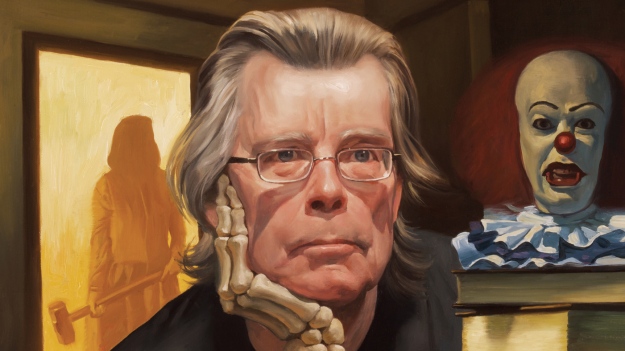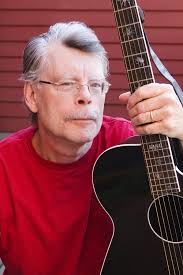Stephen King has repeatedly lamented the fact that so many people tell him their favorite book of his, more often than not, is something from the 1970s or ’80s, like The Stand or The Shining or Misery. He’ll say something like, “It’s a little disappointing to discover so many people find your best work to be many decades past.” But I happen to feel he’s done some of his absolute finest writing in the last ten years or so! He’s my favorite author, and influenced me to become a novelist rather than a sports writer (starting at the tender age of 12—after I first read The Shining). I adore books from throughout his entire 40-plus-year publishing career.
In any case . . . perhaps because of the near-fatal collision between his body and a speeding van in 1999, or maybe because he felt a kind of liberation after finally completing his enormously complex and nuanced masterwork—the seven-book Dark Tower series—I truly feel he’s produced some of his most beautiful and literarily relevant works in the latter stages of his writing life. Stuff like Lisey’s Story, 11/22/63, Under the Dome (my personal all-time favorite), and Full Dark, No Stars. And his newest offering, Revival (released just a couple weeks ago on November 11), is an entirely respectable overall addition to the fantastic groove he’s managed—some might say miraculously—to carve into his path the last decade.
Revival focuses on the intersecting lives of its two main characters. Jamie Morton spends most of his life as a kind of bohemian rock guitarist and a heroin addict. Reverend Charles Jacobs, Jamie’s childhood pastor, experiences an appallingly traumatic event; he then delivers a “Terrible Sermon” denouncing god and religion. Jacobs goes on to devote his life to studying and experimenting with electricity, striving for his ultimate goal of harnessing the “secret electricity,” which would create unspeakable power and danger. The plot is engaging and kept me on my toes. I found the romantic subplot beautiful, sweet, and surprising. King very accurately portrayed a multitude of things: the horrors of addiction, music’s power to bring people together, the clear evidence against a loving god, and how religion-based charlatans can use faith as a weapon to take advantage of the sick and/or vulnerable and/or gullible. My only real problem with Revival was I thought its climactic scene fell flat. That it suffered from a lack of the imaginative voltage King pumped into the rest of the novel. Even so, it was a worthwhile read. It’s far superior to Mr. Mercedes, his previous clunker of a novel, and the electric energy of Revival makes me even more disappointed that he’s turning the former into a trilogy. My score for Revival: 60/100.



